Business Intelligence in Healthcare: Success Strategies
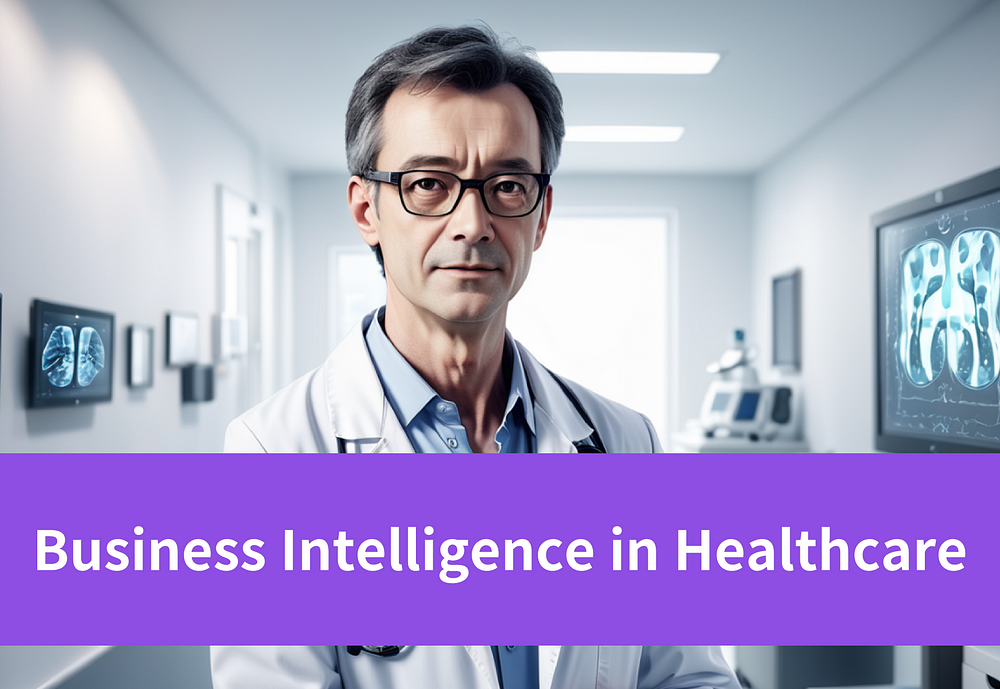
Enhance your operations with business intelligence in healthcare. Discover insights and trends to drive strategic decision-making on our blog.
Key Highlights
- Business intelligence (BI) tools provide healthcare leaders with data-driven insights, facilitating informed decision-making for improved patient care.
- By analyzing patient data, it can identify trends and patterns that lead to better treatment plans and health outcomes.
- Business intelligence solutions can be integrated into existing systems to provide a comprehensive view of patient data and organizational performance.
- It also significantly reduces operational costs and improves efficiency in healthcare settings. Looking ahead, there will be more diverse and massive applications
Introduction
The healthcare industry is changing by adopting business intelligence solutions. Business intelligence in healthcare uses data to drive decision-making, improve patient care, and optimize operations. As healthcare data grows in complexity and volume, business intelligence solutions are crucial for organizations to stay competitive and provide quality care. This article delves into business intelligence in healthcare, its connection to LLM, and its benefits, use cases, and future trends.
Understanding Business Intelligence in Healthcare
Business Intelligence is widely used in healthcare for data collection such as EHRs to collect patient medical history, treatment plans, other medical software, and RPM devices, as well as coming from outside the healthcare setting to support decision-making and improve operational efficiency. It plays a crucial role in healthcare by enhancing service quality, reducing costs, and meeting patient needs through effective data management and analysis.
What is Business Intelligence in Healthcare?
Healthcare business intelligence comprises tools utilized with healthcare data to identify patterns and gain valuable insights. Various healthcare entities like doctors, hospitals, and healthcare companies collect substantial data to support informed business choices. In this process, the raw data will be transformed into applicable insights.
How Does Business Intelligence in Healthcare Relate to LLM?
Powered by machine learning, LLMs are closely related to business intelligence in healthcare. LLMs can enhance the capabilities of Business Intelligence in Healthcare systems by providing advanced NLP capabilities, improving data analysis, and enabling more natural interactions with data. LLM processes and analyzes unstructured data such as medical records, clinical notes and patient feedback to extract valuable information. By integrating LLM with these tools, healthcare developers can unlock deeper insights into their data and make more informed decisions.
Benefits of Business Intelligence in Healthcare
- Data-Driven Decision-Making: It delivers insights into doctors’ misdiagnoses and patient preferences for treatments, aiding healthcare staff in improving care, saving lives, enhancing medicines, cutting costs, and conducting research.
- Reducing Costs: Business Intelligence in healthcare helps reduce operating costs and provides granular visibility into financial activities, improving cash flow monitoring and billing processes.
- Better Collaboration: Healthcare facilities face challenges in uniting departments for common goals. Interactive business Intelligence dashboards and visual reports help pinpoint weak areas and facilitate sharing across the organization, enhancing communication and collaboration efforts.
- Reputation Management: Deciding which patients to discharge is challenging. If a hospital team can’t admit a patient, it can lead to serious complications and damage the hospital’s reputation. Utilizing it in healthcare can help allocate resources.
Use Cases of Business Intelligence in Healthcare
Healthcare business intelligence can be used in a wide range of contexts and directions. By analyzing data on patient demographics, treatment effectiveness, and medical history, healthcare providers can tailor treatments to individual patients, leading to better health outcomes. Business intelligence is also helping healthcare organizations streamline their operations and improve efficiency. Here are the practical uses of business intelligence.
1. Patient Care and Satisfaction
Healthcare services rely more on digital technology to support operations on massive amounts of data. Medical institutions require ease of use of digital solutions to assist surgeons, physicians, and other staff in providing personalized care plans.
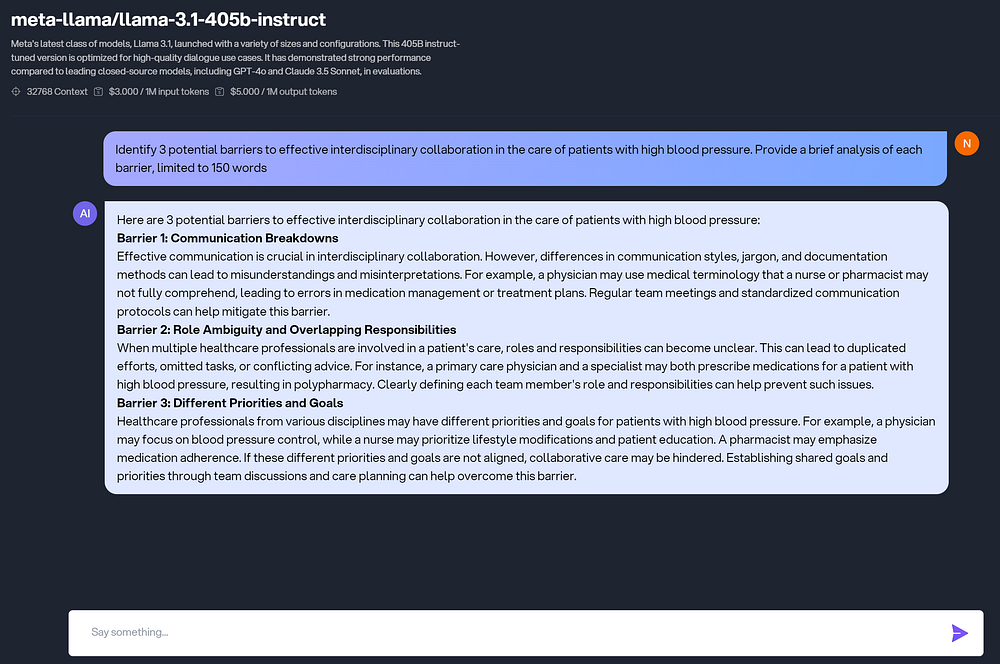
2. Clinical Analytics
Analyzing patient data improves patient care by monitoring records, treatment effectiveness, and clinical decision support systems.
3. Medical Note Documentation
Integrating medical records from various sources and data analytics creates a comprehensive view for improved decision-making. Analyzing these records can pinpoint areas for enhancement in medical, boosting healthcare service efficiency. More governments adopt electronic health record systems to improve patient outcomes
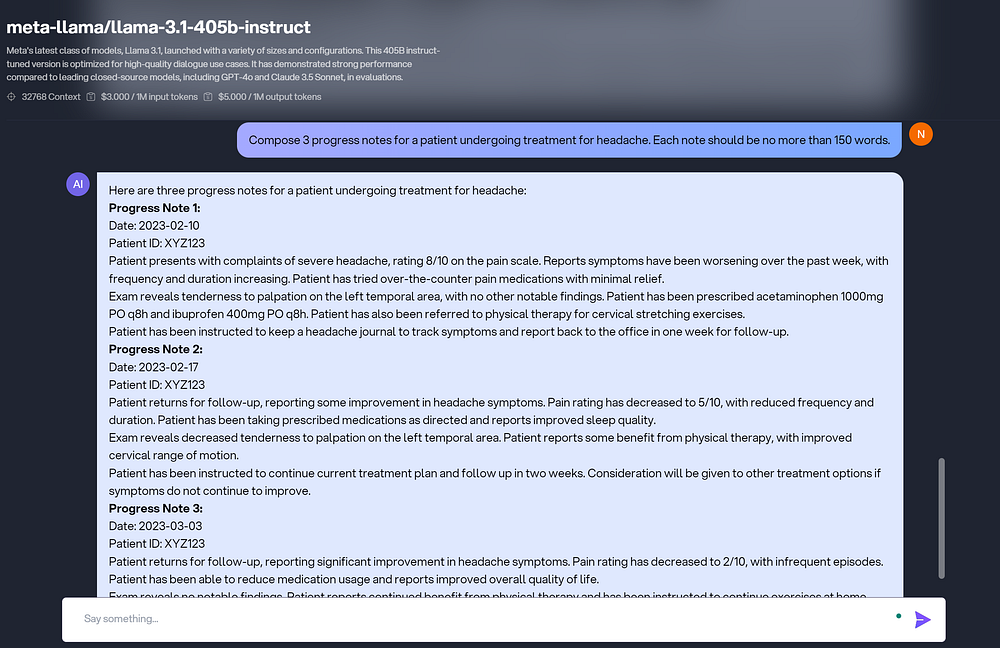
4. Healthcare Financial Analytics
Manage the budget, income, and costs in terms of financial data. It helps healthcare organizations like hospitals, and some medical professionals optimize financial performance, reduce waste in the supply chain, and ensure compliance with regulations. This use case enjoys a large market share.
5. Fraud Detection
In the healthcare sector, this tool uses AI to prevent fraud in insurance claims and healthcare. By analyzing user data, it uncovers unnecessary treatments or tests and detects billing inconsistencies like phantom billing and upcoding. It helps better business decisions and patient satisfaction.
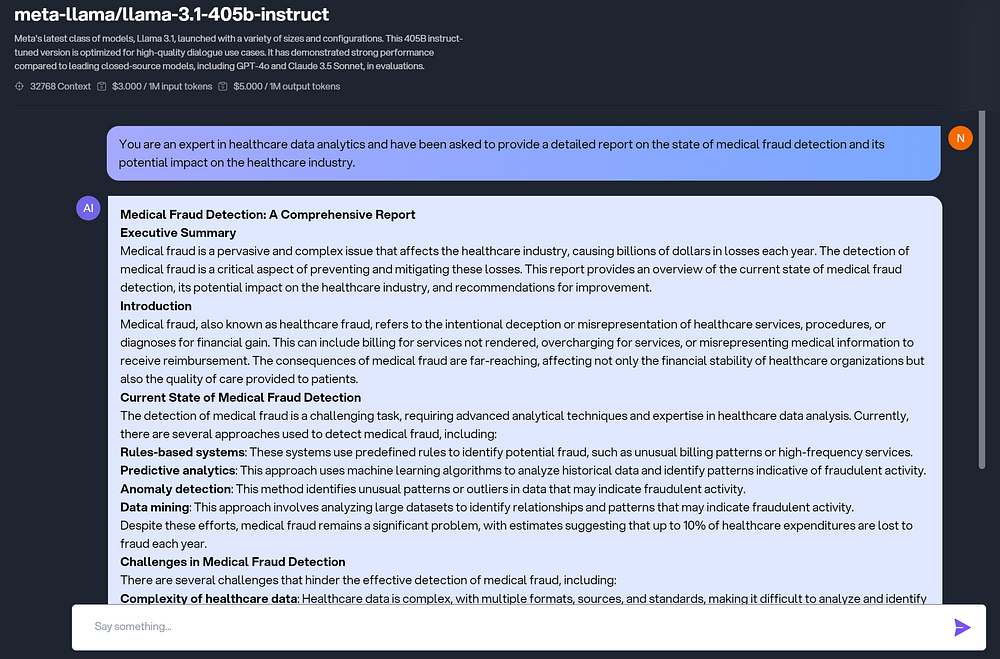
Sample Code
from openai import OpenAI
client = OpenAI(
base_url="https://api.novita.ai/v3/openai",
# Get the Novita AI API Key by referring: /docs/get-started/quickstart.htmll#_3-create-an-api-key
api_key="
)
model = "meta-llama/llama-3.1-405b-instruct"
stream = True # or False
max_tokens = 512
chat_completion_res = client.chat.completions.create(
model=model,
messages=[
{
"role": "system",
"content": "Act like you are a helpful assistant.",
},
{
"role": "user",
"content": "Hi there!",
}
],
stream=stream,
max_tokens=max_tokens,
)
if stream:
for chunk in chat_completion_res:
print(chunk.choices[0].delta.content or "", end="")
else:
print(chat_completion_res.choices[0].message.content)
6. Population Health Management
Identify health trends, risk factors, and intervention opportunities to enhance the health and patient experience of specific patient groups. Analyzing this data helps determine disparities in health access, enabling the implementation of mitigation strategies and better patient outcomes.
7. Real-time Monitoring
These predictive analytics tools monitor vital signs, lab results, and patient data to alert healthcare providers for immediate intervention in intensive care and emergency departments. Healthcare intelligence solutions collect and analyze data from remote patient devices to monitor health statuses like blood sugar levels and heart rates for prompt intervention.
Guide to LLM Integration in Business and Medical Domains
1. Data Preparation
Ensure access to high-quality, diverse datasets for training and fine-tuning the LLM models.
2. Domain Expertise
Use techniques like transfer learning and prompt engineering to leverage the experts’ insights.
3. Infrastructure and Resources
Access the necessary computational resources. Implement robust data security and privacy measures using tools like TensorFlow Privacy.
4. Regulatory Compliance
Adhere to industry-specific regulations and guidelines, such as HIPAA or GDPR, using libraries like privacy-preserving-ml. Develop ethical frameworks and governance structures to ensure responsible deployment of LLM-based solutions.
5. System Integration
Integrate the LLM-based applications with existing software systems and workflows using APIs and microservices architectures.
6. Monitoring and Improvement
Implement monitoring and evaluation mechanisms using libraries like Weights & Biases or MLflow. Continuously refine the models and address evolving requirements through iterative development cycles.
How to Use Novita AI LLM API
For easy use, you can choose LLM API Service with Novia AI, an AI API platform aimed to provide user-friendly and cost-effective LLM API service. This approach allows for fast and scalable AI capabilities, enhancing the quality and diversity of generated content.
Quick start with Novita AI LLM API
- Step 1: Visit the website and log in to your account.
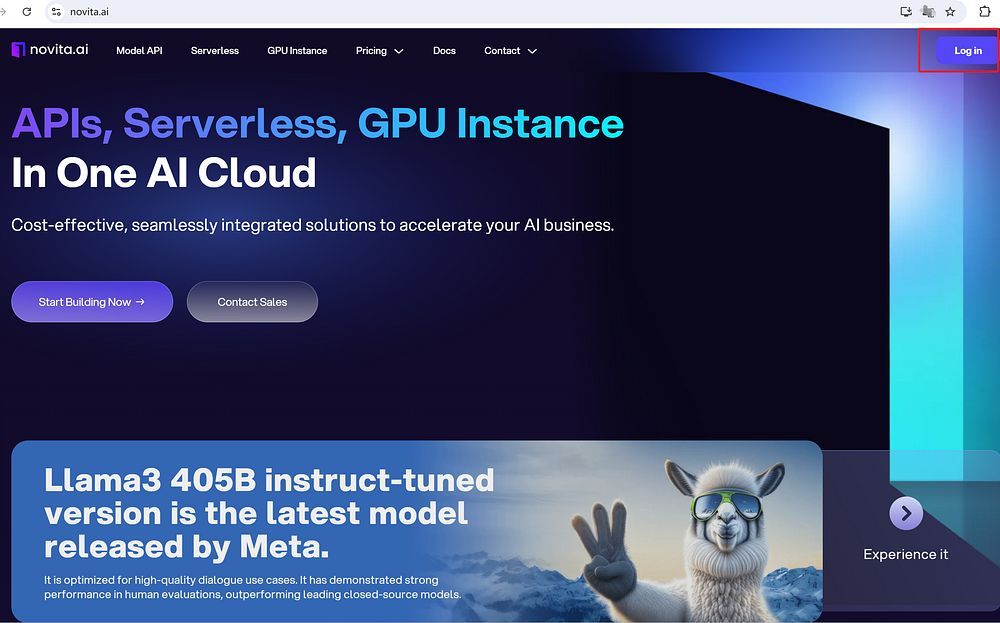
- Step 2: Navigate to “LLM API Key” and obtain the API key you want, like in the following image.
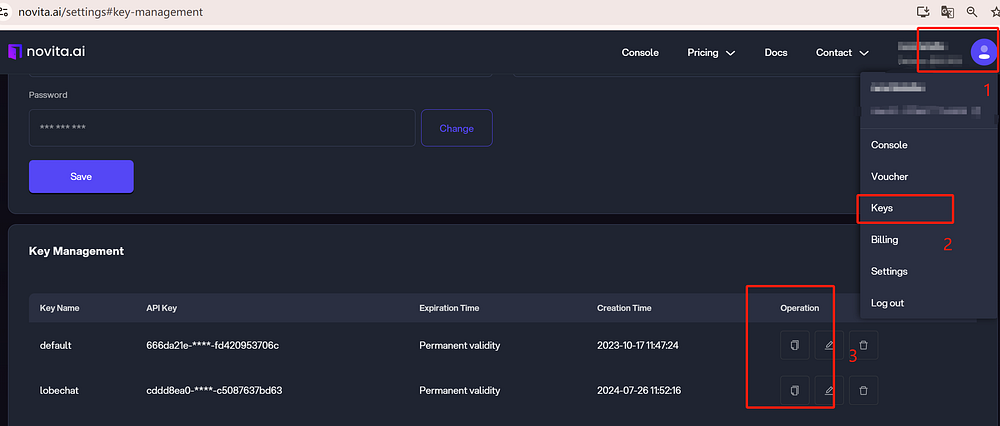
- Step 3: Navigate to API Reference. Find LLM API under the “LLMs”. Use the API key to make the API request.
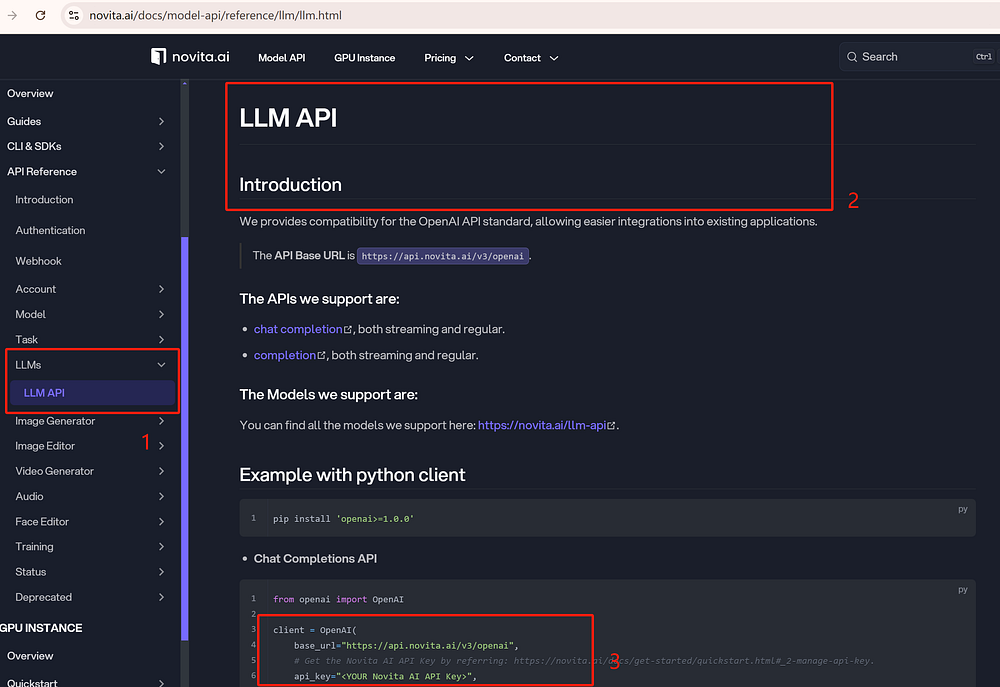
- Step 4: You can adjust the parameters according to your needs.
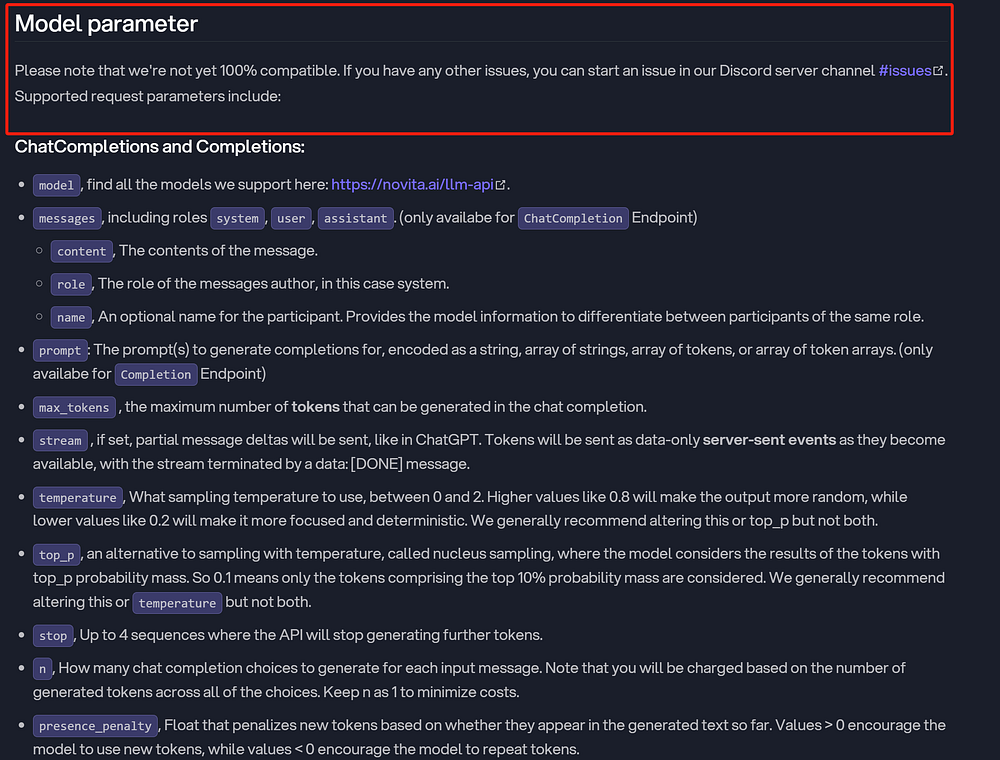
- Step 5: Integrate it into your existing project backend and wait for the response. Here is a code example for reference.
Example with curl client

Try it on the “playground”:
- Step 1: Navigate to “Model API” under the “Products” tab. Click LLM Playground.
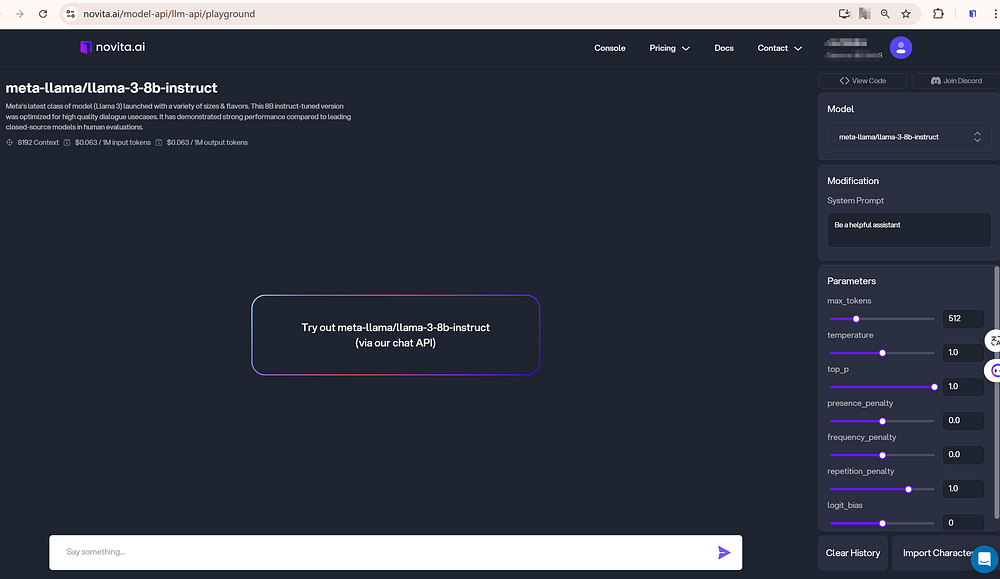
- Step 2: Select the model and input a detailed text prompt.
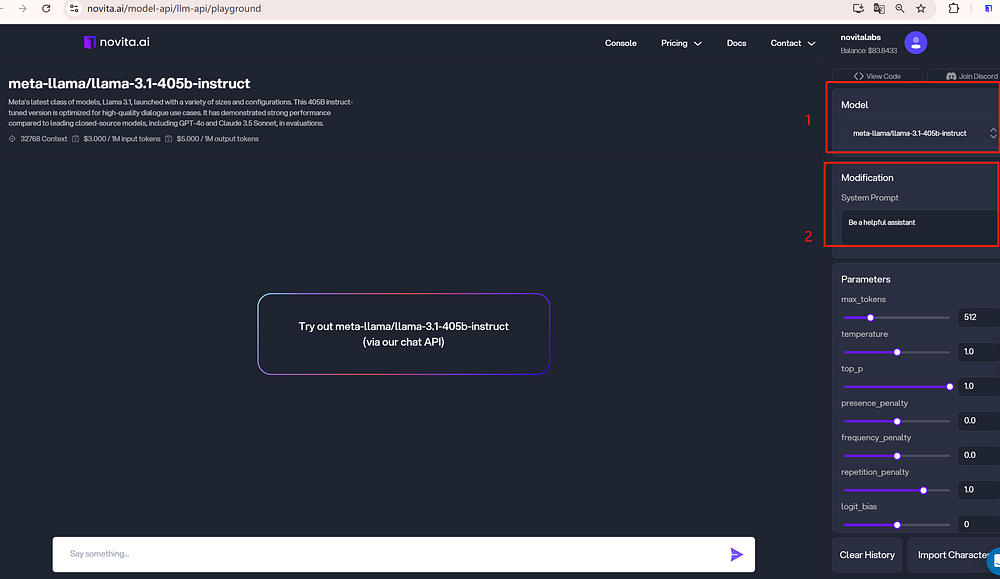
Here are some sample prompts for reference.
- Public health and prevention: Develop a community-centred awareness program outline centred around [medical condition]. Offer three examples, each containing 200 words or less.
- Patient experience and satisfaction: Suggest three strategies to enhance patient communication and involvement in a medical practice specializing in [medical condition]. Provide a brief description for each strategy, limited to 100 words.
- Medical Research: Provide a concise summary of a clinical trial associated with [medical condition]. Include three examples, each limited to 200 words.
- Medical documentation: Write a case summary for a patient with [medical condition]. Give me 3 examples. You have 250 words max for each summary.
- Step 3: Set the other parameters below.
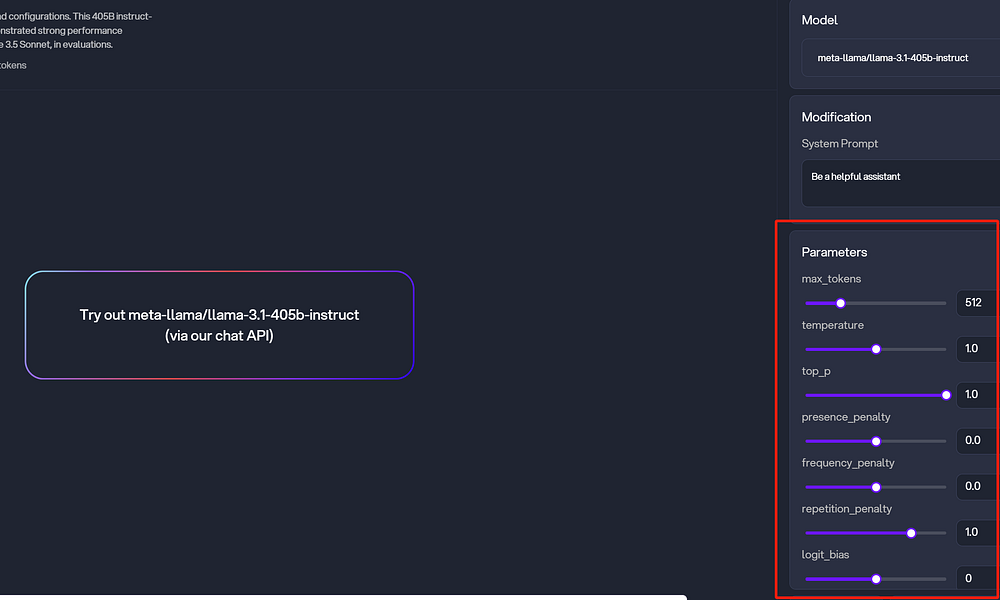
- Step 4: Generate your final content.
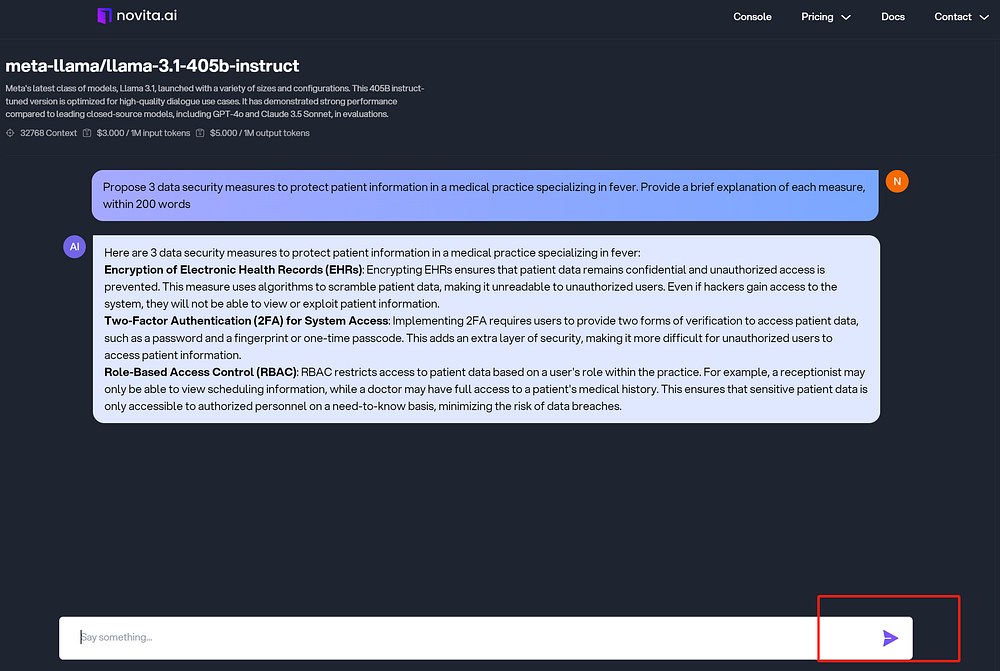
Future Trends of Business Intelligence in Health Care
Business intelligence in the future of healthcare will be driven by technological innovation, policy support, market demand growth, and changes in medical service models.
Data Security and Privacy Protection
As medical data grows, ensuring data security and patient privacy becomes crucial in the development of business intelligence.
Allocation of Medical Resources
Business intelligence helps in the rational distribution of medical resources, such as enhancing the service capabilities of primary healthcare institutions through telemedicine services, easing the pressure on urban hospitals.
Innovations in Healthcare Service Models
Future healthcare will move towards greater personalization and convenience, such as meeting patient needs through online diagnosis and Internet healthcare services like chronic disease management.
Conclusion
The use of business intelligence in healthcare is transforming the industry by providing data-driven insights to improve patient care, reduce costs and optimize operations. By utilizing business intelligence tools and techniques, healthcare professionals can gain a deeper understanding of health data and patient information to make informed decisions. As the industry continues to evolve, we can expect to see more innovative applications of business intelligence combined with LLMs in health care to achieve a higher quality of life.
FAQs
How does AI reduce human error in healthcare?
AI swiftly identifies medical errors by analyzing electronic health records, diagnostic images, and patient data. It detects inconsistencies that may indicate misdiagnosis or incorrect prescriptions.
What is business intelligence in pharma?
It gathers data from various sources and allows pharmaceutical companies to leverage data analytics for trend identification and inconsistency detection.
What are the five basic tasks of business intelligence?
The five basic tasks of business intelligence are data sourcing, engineering, analysis, situation awareness, decision-making, and decision support.
What are the disadvantages of artificial intelligence in healthcare?
AI algorithms may perpetuate biases present in healthcare data, leading to unfair treatment of different patient populations.
Novita AI is the All-in-one cloud platform that empowers your AI ambitions. Integrated APIs, serverless, GPU Instance — the cost-effective tools you need. Eliminate infrastructure, start free, and make your AI vision a reality.
Recommended Reading
1.Harnessing 9 LLM Use Cases for Success